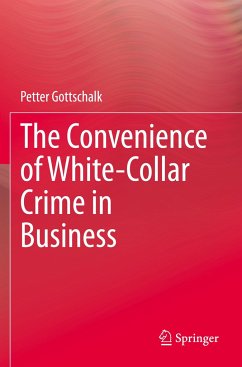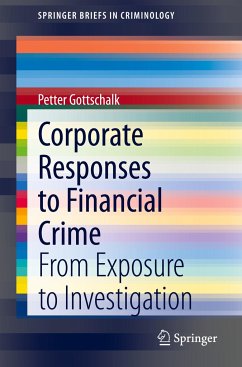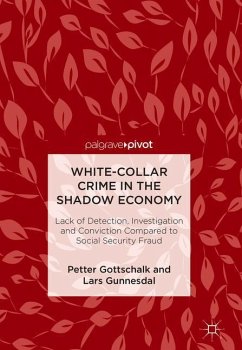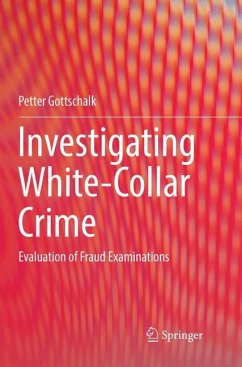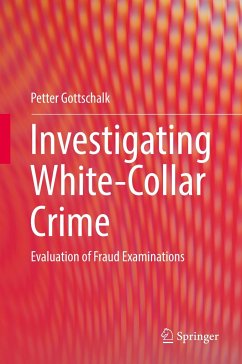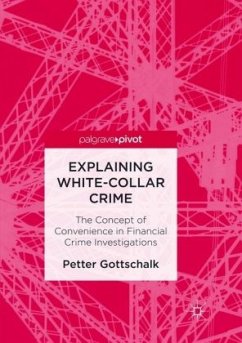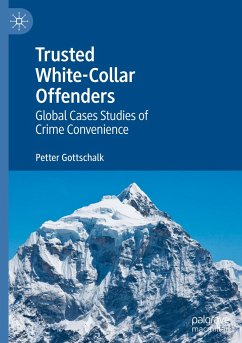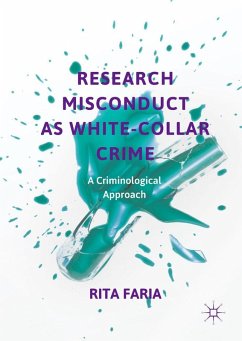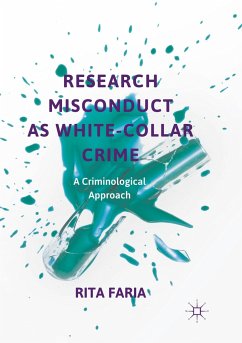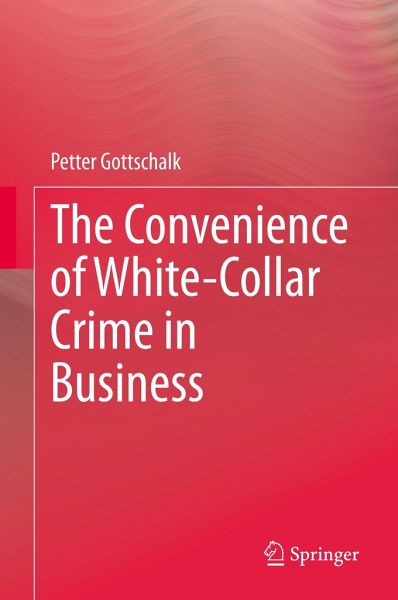
The Convenience of White-Collar Crime in Business
Versandkostenfrei!
Versandfertig in 6-10 Tagen
76,99 €
inkl. MwSt.
Weitere Ausgaben:

PAYBACK Punkte
38 °P sammeln!
This book outlines the theory of convenience for white-collar crime to explain what motivates and enables offenders, providing a unique focus on white-collar crime in the business context. The theory of convenience suggests that the extent to which elite members commit and conceal economic crime is dependent on their extent of orientation towards convenience in problematic and attractive situations. Chapters are organized along the main theoretical dimensions of economical motive, organizational opportunity, and personal willingness.In addition, this book:Addresses a business audience by focus...
This book outlines the theory of convenience for white-collar crime to explain what motivates and enables offenders, providing a unique focus on white-collar crime in the business context. The theory of convenience suggests that the extent to which elite members commit and conceal economic crime is dependent on their extent of orientation towards convenience in problematic and attractive situations. Chapters are organized along the main theoretical dimensions of economical motive, organizational opportunity, and personal willingness.
In addition, this book:
Addresses a business audience by focusing on themes familiar to corporationsDocuments attitudes towards white-collar crime among business students and future business leadersAnalyzes how convenience orientation varies among individualsAnalyzes autobiographies of convicted white-collar offendersDemonstrates the various ways in which white-collar crime occurs
The Convenience of White-Collar Crime in Business contributes to an increased understanding of white-collar crime, offering valuable insight in business education that supplements the traditional roles of topics like auditing and compliance in education and practice. It is a useful resource for researchers and law enforcement, and those involved in the detection, prosecution, and conviction of white-collar offenders.
In addition, this book:
Addresses a business audience by focusing on themes familiar to corporationsDocuments attitudes towards white-collar crime among business students and future business leadersAnalyzes how convenience orientation varies among individualsAnalyzes autobiographies of convicted white-collar offendersDemonstrates the various ways in which white-collar crime occurs
The Convenience of White-Collar Crime in Business contributes to an increased understanding of white-collar crime, offering valuable insight in business education that supplements the traditional roles of topics like auditing and compliance in education and practice. It is a useful resource for researchers and law enforcement, and those involved in the detection, prosecution, and conviction of white-collar offenders.





